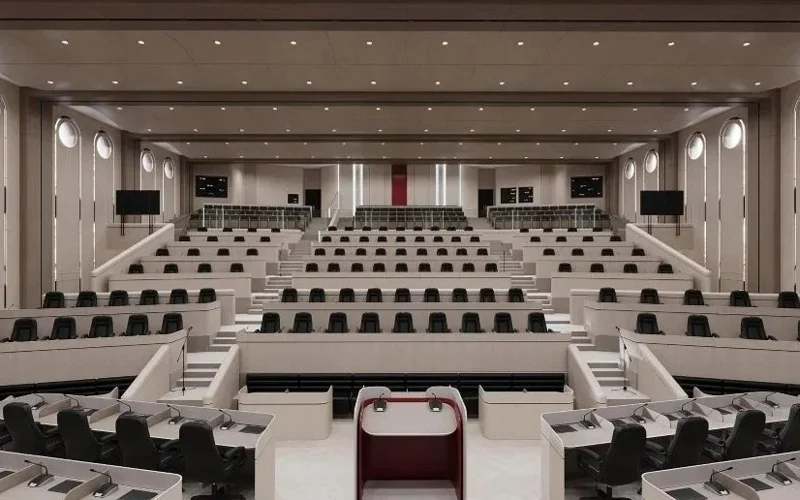Women's representation to be increased in new convocation of Kyrgyz Parliament
Kyrgyzstan is taking a bold step toward gender equality in politics - in a landmark move, the country has increased the quota for women in its parliament from 30% to 34%, signaling a growing commitment to inclusive governance, Kabar reports.

This change comes as part of broader electoral reforms aimed at amplifying women's voices in decision-making and ensuring more balanced representation in the Jogorku Kenesh (the Kyrgyz Parliament).
The updated legislation also introduces quotas for youth, ethnic minorities, and people with disabilities—making Kyrgyzstan one of the few countries in Central Asia actively pushing for intersectional representation in its national legislature.
According to the National Statistical Committee, as of January 1, 2025, the number of women in the country was 3,678,718.
In the previous, 7th convocation of the Zhogorku Kenesh, there were 20 women deputies, 19 of whom were elected on party lists and only one from a single-mandate constituency. The number of women deputies in parliament is expected to increase in the upcoming elections due to constitutional amendments. Makhabat Kozhokeeva, Head of the Central Election Commission's Election Organization Department, explained that, according to the amendments to Article 64, the three candidates who receive the most votes from a multi-mandate constituency will be elected. When distributing mandates from a multi-mandate constituency, no more than two mandates can be awarded to one gender. Thus, out of 90 parliamentary seats, 30 will be allocated to representatives of one gender. This represents 33% of the total. For example, if three women candidates in a constituency receive the most votes, two mandates will be awarded to women, she said.
Kozhokeeva also clarified that if a female deputy resigns early for any reason, her mandate will be transferred to another woman. The same applies to men. However, if there is no candidate of the same gender, the mandate may be transferred to a representative of the opposite gender. Election results will be valid only if at least 30 parliamentary seats are filled by representatives of one gender.
Former MP of the 5th and 6th convocations and politician Ainuru Altybaeva noted that Kyrgyzstan places great importance on gender equality.
Our Constitution enshrines equal rights and opportunities for men and women. Furthermore, the electoral section of the Constitution provides for a quota. For example, not a single woman was elected to parliament in the 3rd convocation. Since parliament is a representative body, and given that women make up 52% of the country's population, a quota was introduced into the constitution as a temporary measure. This is also being done to ensure that representatives of various social spheres are represented in parliament, Altybaeva explained.
She also emphasized the benefits of increasing the number of women in Zhogorku Kenesh. If women represent less than 10% of parliament members, only specific social issues are raised. If they represent at least 20%, social issues are addressed. And at 30%, many social problems begin to be addressed. Therefore, distributing mandates based on a 30% representation is a very sound decision. This means that at least a third of parliament will be women. And given that Kyrgyzstan has identified social issues as a priority, a high representation of women in parliament will help solve many problems, she concluded.
Earlier, it was reported that the Kyrgyz president had signed the decree to set parliamentary elections for November 30.
